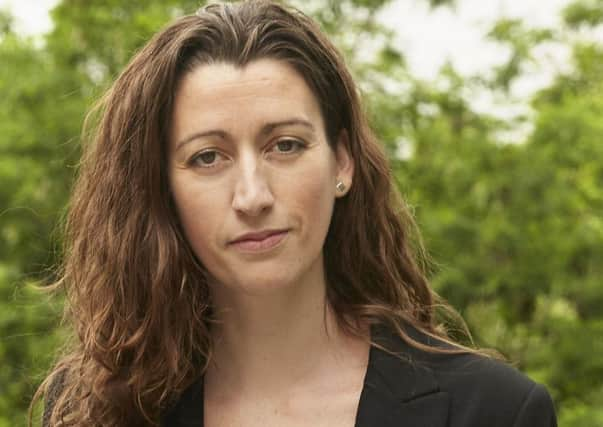EIF tackles big questions with new strand You Are Here


When Fergus Linehan took to the podium in the vast function suite at Tynecastle Stadium last Wednesday to introduce the programme for the 2019 Edinburgh International Festival, it wasn’t just the venue that signalled a change from previous years. Not only will this year’s festival open, on 2 August, with a spectacular free family event at Tynecastle, featuring the Los Angeles Philharmonic with music from Hollywood; the whole Festival programme has a subtly different look. Towards the back of the brochure, as ever, the concert series at the Usher Hall and Queen’s Hall – and now also at Leith Theatre – are listed in familiar format. Up front, though, the Festival’s opera, theatre and dance offerings now form a seamless series of major performance events, the boundaries between them ever more fluid. And around half way through the programme shifts into a new strand called You Are Here, which has been curated for the Edinburgh International Festival by Edinburgh-born and London-based producer Kate McGrath, whose parents John McGrath and Elizabeth MacLennan founded the groundbreaking 7:84 Theatre Company in the 1970s, and whose producing company Fuel has built up a formidable reputation over the last 15 years for promoting theatre from new and original perspectives.
Fuel recently scored a major international success with its acclaimed show Barber Shop Chronicles, about the lives of black men across the world, revealed through conversations with their barbers; and the company was co-producer of the recent Bristol Old Vic/ Royal Lyceum production of Touching The Void, which thrilled audiences in Edinburgh and Inverness earlier this spring.
Advertisement
Hide AdAdvertisement
Hide Ad“Our aim at Fuel has always been to produce the work of exciting artists, who are looking intensely at the world around them, and at how we relate to each other in it,” says McGrath, “and so when Fergus approached me and offered me the chance, over the next four years, to curate a strand of work that would raise the same kind of questions in the context of the Edinburgh Festival, it made every kind of sense. In a sense, I’ve been asking what ‘Edinburgh’ means – because I still have such a strong relationship with the city I grew up in, and the issues it faces – as well as what ‘international’ means in 2019, and what ‘festival’ now means, 72 years on from the first Edinburgh Festival; and I hope this year’s You Are Here programme is a statement of intent about how we start to explore those questions.”
For 2019, McGrath has put together a programme of ten shows of which four are dance-based and the rest are various kinds of theatre. The theatre work has its origins in Nigeria, England, Scotland, Belgium, and North America; and it ranges from the British premiere of the Open Eye/American Repertory Theatre production Hear Word!, in which a group of powerful Nigerian women artists and performers “talk true” about women’s lives in Africa now, to Kiinalik: These Sharp Tools, a studio show with music in which two extraordinary Canadian artists, Evalyn Parry and Laakkuluk Williamson, give voice to their different but intertwined histories and colonial legacies from the northern and southern extremes of Canada, and to the climate-challenged future they face.
McGrath’s programme also includes the European premiere of a new show called Roots by the brilliant English company 1927, and the world premiere of the National Theatre of Scotland’s new stage version of Red Dust Road, Scottish Makar Jackie Kay’s memoir of her search for her Nigerian birth father. There’s German-based Swiss director Milo Rau’s remarkable La Reprise, about the notorious murder of a young Belgian gay man in 2012, and the world premiere of the latest show by the groundbreaking theatre artist and performer Tim Crouch. And all of this comes with a package of debates and discussions which includes a series of 18 Morning Manifestos for the future written by different international artists, with discussions chaired by the Lyceum’s David Greig, artist-hosted meals under the title Breaking Bread, and a residency by five emerging international writers from the Royal Court Theatre in London.
“It’s a really essential part of You Are Here to encourage people beyond the artists themselves to become engaged with this discussion,” says McGrath, “both Edinburgh people, and the amazing international community of audience members that arrives in Edinburgh every August. It’s all about how the festival was founded in a time of devastation, after the Second World War, as a creative response to that; and about what role art and culture can play now, in widening our understanding of ourselves and how we relate to others in this new time of crisis.
“In terms of my contribution – well of course I was hugely influenced and shaped by my parents and what I learned from them. I was brought up to be engaged with the world, and to see theatre as place for people to come together, and for that conversation to begin.
“I was also brought up to understand that form matters – that if you want to say something really new, you have to challenge everything – not only the content of theatre, but where it happens, how much it costs, what form it takes. It was incredibly moving for me when an old friend came to see Barber Shop Chronicles in London, and said to me afterwards, ‘You know, Kate, this is a ceilidh show. It feels like the Cheviot, even though it’s about a completely different culture.’ That meant so much to me; because for me, it’s always about reaching out to audiences, and making them feel that it matters that they’re there. And I do hope we can bring some of that feeling to this amazing Festival, over the next four years.”
The Edinburgh International Festival runs from 2-26 August. For programme details see www.eif.co.uk